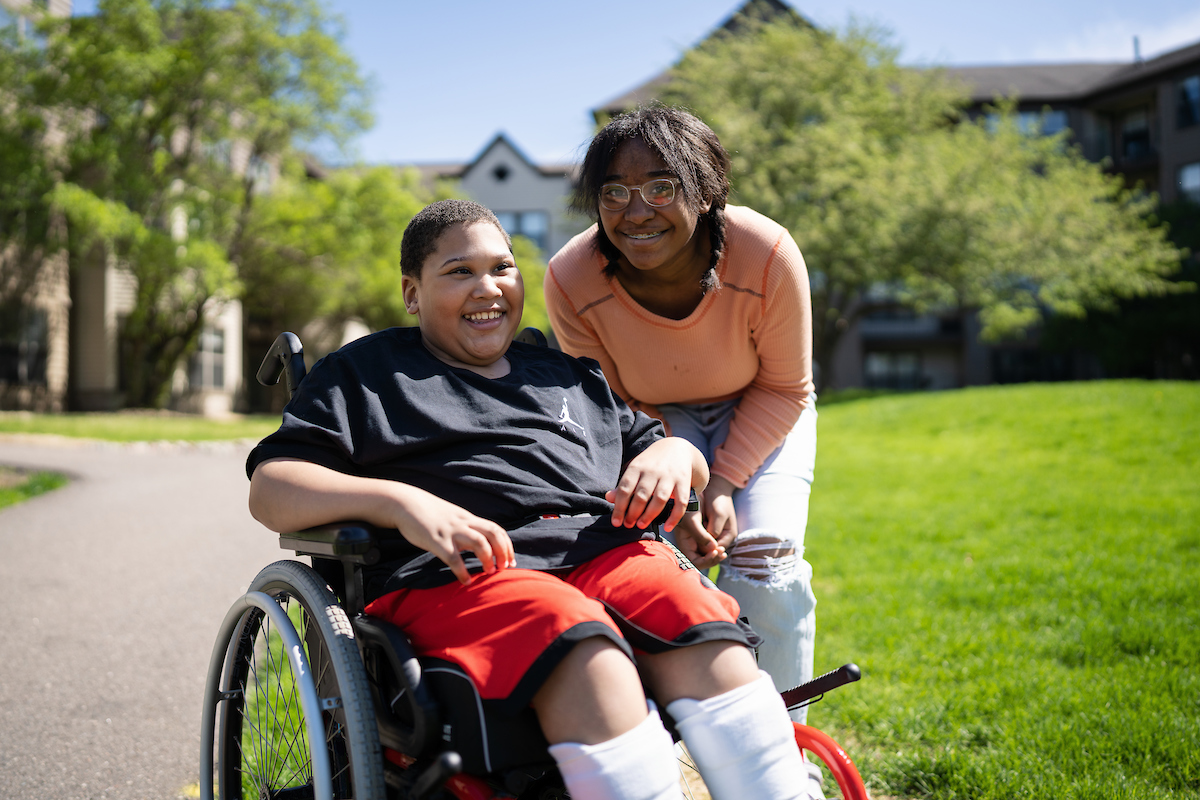What is neuromuscular scoliosis?
Neuromuscular scoliosis is an abnormal curving and twisting of the spine in children with an underlying neuromuscular condition such as muscular dystrophy, spina bifida, spinal muscular atrophy, or cerebral palsy. These changes in nerve and muscle function reduce the ability to physically support a growing spine.
At Gillette Children's, board-certified orthopedic and spine specialists provide individualized care to children affected by neuromuscular scoliosis. Our patient-centered approach ensures the best possible outcomes for the children and families seeking neuromuscular scoliosis care at Gillette.
What causes neuromuscular scoliosis?
Neuromuscular scoliosis is a type of scoliosis associated with an underlying neurological and/or muscular condition. In patients with neuromuscular disorders, the muscles supporting the spine are underdeveloped, spastic, or weak, making it difficult to support a growing spine and torso. This lack of muscular support causes the spine to grow curved and twisted. The incidence of neuromuscular scoliosis and the size of the curve increases with the severity of the condition.
What are the signs of neuromuscular scoliosis?
Common signs of neuromuscular scoliosis include:
- Prominent ribs on one side of the body.
- Tilted shoulders or shoulders of uneven height.
- One shoulder blade that protrudes more than the other.
- An uneven waistline.
- One hip higher than the other when seated.
- Persistent leaning to one side.
How is neuromuscular scoliosis diagnosed and treated?
Diagnosis
To diagnose neuromuscular scoliosis, your child's provider may use a variety of tests and techniques. These may include physical examinations, imaging (X-rays), family and health history evaluations, and assessments of the severity of underlying conditions contributing to a neuromuscular scoliosis diagnosis.
Treatment
Your child's treatment for neuromuscular scoliosis may vary according to factors such as age, the severity of their spinal curvature, and their underlying diagnoses. Treatment options for neuromuscular scoliosis include both surgical and nonsurgical interventions.
Nonsurgical treatment options for neuromuscular scoliosis include:
- Wheelchair modification.
- Bracing to support the spine.
- Physical therapy.
Surgical treatments commonly used for neuromuscular scoliosis include:
- Spinal fusion.
- Traditional growing rods.
- Magnetic Expansion Control (MAGEC) rods.
Neuromuscular Scoliosis Care at Gillette Children's
A child with an underlying neuromuscular condition frequently requires care from multiple specialists. Gillette Children's full-service, family-centered approach to care gives your child a chance to live life as fully as possible. You can count on our exceptional team of specialists to help your child feel their best.
Your child might receive neuromuscular scoliosis treatment from experts in the following areas:
 Home Page
Home Page

